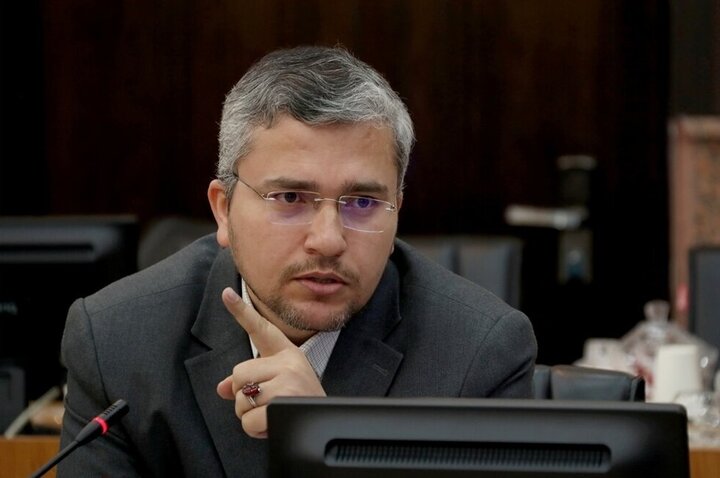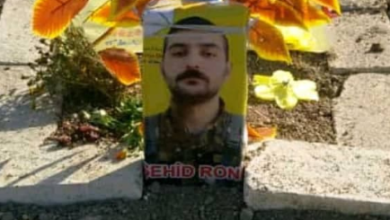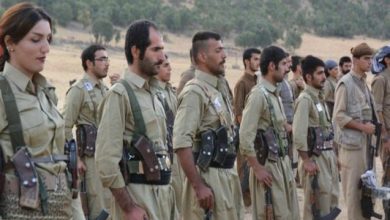In an interview with a reporter from Iranian Kurdistan Human Rights Watch, Ebrahim Rezaei, spokesperson for the Islamic Consultative Assembly’s National Security Commission, emphasized the necessity of fully implementing the security agreement between Iran and Iraq. He stressed that both the central government in Baghdad and the Iraqi Kurdistan Region authorities must be held accountable for their commitments to disarming and expelling anti-Iranian armed groups. He warned that continued procrastination in this regard challenges Iran’s border security and demanded the extradition or prosecution of these groups’ leaders
Speaking to a reporter from Iranian Kurdistan Human Rights Watch, Ebrahim Rezaei, spokesperson for the Islamic Consultative Assembly’s National Security Commission, elaborated on the importance and necessity of fully implementing the security agreement between Iran and Iraq and the adherence of the Iraqi side and Kurdistan Region authorities to their commitments regarding controlling the destructive activities of anti-Iranian armed groups based in northern Iraq. He stated:
“Relations between Iran and Iraq, as two friendly and brotherly countries with shared borders and extensive historical, religious, and cultural commonalities, represent a strategic relationship. This can be observed in the extensive cooperation between the two sides in various political, economic, cultural, military, and security fields.”
He added, “Furthermore, Iran’s relationship with the Iraqi Kurdistan Region is a reasonable and logical one. Despite the ups and downs we’ve experienced and continue to face, both sides are committed to strengthening this connection and increasing cooperation, especially in the area of trade.”
Referring to certain problems and threats emanating from the Kurdistan Region due to the presence and activities of anti-Iranian armed groups in that area, Ebrahim Rezaei clarified, “For twenty years, the Islamic Republic of Iran exercised strategic patience in the face of threats that disrupted the security and peace of people in the western and northwestern border areas of the country. We tried through various channels to convey the message to the central government in Baghdad and the rulers of the Kurdistan Region that, within the framework of good neighborliness, they should control the sources of threats against Iran. However, despite promises from the Iraqi side, this has not been achieved.”
The spokesperson for the National Security Commission stated, “Ultimately, in March 2023, the two sides successfully signed a security agreement. According to its provisions, anti-Iranian Kurdish armed groups stationed in the Iraqi Kurdistan Region were supposed to be completely disarmed and expelled from Iraqi territory by September 19, 2023; something that has not yet been fully accomplished.”
He continued, “More precisely, it can be said that in areas related to the Patriotic Union of Kurdistan (PUK), good measures have been taken, and existing headquarters have been evacuated. However, in areas related to the Kurdistan Democratic Party (KDP), not only has no action been taken to evacuate headquarters, but we sometimes even witness military maneuvers.”
Ebrahim Rezaei added, “In this regard, officials in Baghdad and Erbil must explain why, despite numerous meetings between the Iranian and Iraqi sides to oversee the proper implementation of the agreement’s provisions, they have still failed to fulfill their commitments and allow Iraqi soil to become a place for threatening neighbors, contrary to what is stated in Iraq’s own constitution.”
The spokesperson for the National Security Commission emphasized, “Another crucial provision and aspect of the agreement, which can be categorized under the judicial cooperation of the two sides, is the issue of ‘extradition’ of the leaders of anti-Iranian armed groups. The issuance of red notices for these individuals by Interpol, the existence of private plaintiffs, numerous meetings between Iranian and Iraqi judicial authorities, and the emphasis that the leaders of these groups must be tried in court and held accountable for their crimes, all demonstrate the serious resolve of the Islamic Republic of Iran to operationalize this important clause of the agreement. Unfortunately, it has not yet been implemented by the Iraqi side.”
He stated, “Based on what has been discussed, the leaders of these groups must either be handed over to Iran or be tried in Iraqi courts, in coordination with Iran, within the framework of judicial cooperation, and be held accountable to their private plaintiffs; plaintiffs who are often Iranian Kurdish citizens and victims of these groups’ human rights violations.”
Ebrahim Rezaei stated that according to the agreement’s provisions and Iran’s declared stance, if individuals in these groups have no history of terrorist or criminal activities, they can return to Iran and lead normal lives. He added, “Unfortunately, these individuals are often rejected by their families and society for various reasons. In this regard, it is necessary for various state institutions to formulate and implement extensive support policies to facilitate the return of these individuals to normal life with their families.”
The spokesperson for the National Security Commission concluded, “Our emphasis is that Iraqi authorities should promptly remove obstacles to the full implementation of the agreement’s provisions and adhere to their commitments. This will lead to better security along the borders of the two countries, an increase in trade interactions and cooperation between Iran, Baghdad, and the Iraqi Kurdistan Region, and consequently, a boost in business, development, and economic stability in our country’s western and northwestern border regions.”






